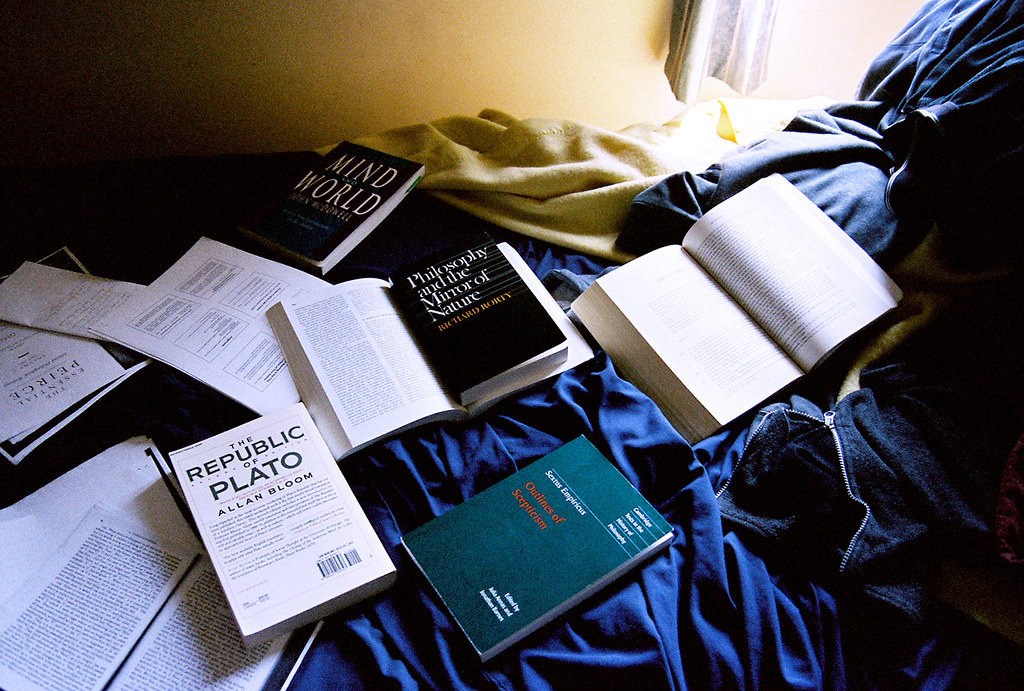In this post, author Benjamin J. Gohs provides insight into the world of self-publishing.
When my editor said he wanted me to do a piece on self-publishing, my first thought was that there were already more than enough self-proclaimed writing experts pimping the same few regurgitated bits of advice. The real question, it seemed to me, was whether you should publish at all. I don’t think it’s a stretch to say we now have more writers than readers. Of course, that’s not an entirely new problem.
Advice and the Craft
As poet Evan Shipman tells Ernest Hemingway in A Moveable Feast, “The completely unambitious writer and the really good unpublished poem are the things we lack most at this time.” Before I get to my potentially superfluous advice, one admonition: be careful from whom you take advice on this craft of ours. Most platform peddlers have never had a bestselling or even moderate-selling novel, and the first writing most of them ever sold seems to be the books they wrote which promise to turn you into a bestseller. How does someone who has never played baseball professionally coach a team to the World Series?
Your guess is as good as mine.
I’ve never written a bestseller. But I have been selling writing in one form or another for 17 years. I’ve published over 650 newspaper editions, more than three thousand articles, dozens of niche magazines, as many nonfiction books—some mine, some for others—a couple hundred essays, and a few other odds and ends. Some of my efforts have been successful and some have not. So, why take advice from me?
Because I know chicanery when I see it. And there’s an awful lot of it going on in the self-publishing industry.
Combatting Snake Oil
More importantly than that, I’m not selling you anything. I don’t want your money. Nor your email address. I don’t want you to sign up for my spammy newsletter. What I do want is for you to be honest as to whether you should self-publish at all—by which I don’t mean should you choose self-publishing over traditional publishing. Fact is, if you could get a traditional publishing deal, you wouldn’t even be considering self-publishing.
Well, you might. There are those loathsome mythical few bestselling authors who struck off on their own. But, for the 99 percent, we self-publish because it’s our only option. I’m not supposed to say that, but it’s true. I guess you could scribble your mad ramblings onto Long John Silvers napkins and hand them out to strangers at gas stations. But that didn’t work for Hemingway and it probably won’t work for you.
There’s nothing wrong with self-publishing but—he said dramatically—let’s be clear: self-publishing is an act of vanity as much as it is an act of futility. The chance you will ever sell more than a few copies, and those to friends and family, is so close to zero that it might as well be. If you’re looking for fame or money, start playing the lotto or recording some mildly amusing jack-assery for Tik-Tok.
Assessing the Book You Wrote (or Did Not Write)
Even if you wrote a great book—which you most certainly did not—there are untold factors which determine a book’s success.
- Are you already famous?
- Do you have good friends high up in publishing?
- Do you have gobs of money to throw at advertising?
- Are you handsome or pretty?
- Do you have a massive social media following?
- Is Stephen King your dad?
If you can’t tick off most of the above boxes, your book will never be seen … and unseen books are unsold books. That doesn’t mean you can’t or shouldn’t publish your book, but you should be honest with yourself about what it is you’re attempting. Because what you’re attempting is hopping up Everest, on your hands, backward while being chased by uncouth baboons. And they are sooo horny. By even thinking of publishing a book, you’re saying you feel it’s good enough to sit on the shelf next to the world’s greatest masterpieces. Otherwise, why did you write it?
Being Honest with Yourself
Being straight with yourself now could save you a lot of time and money, and years of misery.
- Have you spent at least 10 years reading and writing a tremendous amount? I mean reading books and writing every day for at least a decade.
- Have you rewritten and edited your manuscript two dozen times?
- Agonized over every sentence? Had at least three nervous breakdowns?
- Is your story amazing, the prose captivating?
Of course your mom likes it but she’s been lying to you since you were old enough to finger paint. I understand the urge to publish a poorly written or unfinished book. Impatience, feelings of failure in other aspects of your life, visions of adoring fans and giant bags of money—the siren songs are manifold. I’ve been there. I still go there sometimes. It’s a dark lonely place of self-loathing and despair and gluten-free pancakes.
The problem is, writing a book is something anyone can do.
So, everyone thinks they may. It’s how we end up with works by Snooki and Fabio and James-flipping-Franco. It’s the most popular way for us, myself included, to feel like we’re doing something of value … even when we’re clearly incapable. You can’t just walk into a courtroom and declare yourself a lawyer, but you can sit in a coffee shop or on Twitter and crown yourself Queen of the Printed Page.
Conclusion
But, your majesty, writing is about doing the hard work—first for yourself. Then, and only maybe, for others.
Writing is about living in your head. It’s about better understanding you and me. It’s about reading all the books and writing thousands and thousands of pages, even though no one will likely ever see most of them.
Writing means feeling better while scribbling than you will all the rest of the day. If putting words on paper doesn’t bring you that kind of joy, you should probably find another hobby. In Charles Bukowski’s poem so you want to be a writer, he declares, “if it doesn’t come bursting out of you in spite of everything, don’t do it.” Look, I’m never going to be famous and neither are you. But, if we work really hard and take our time, we might create something truly good.
A few people might actually pick up our book—not out of some sense of familial obligation—and read our words and achieve that cosmic orgasmic zing of telepathic footsie reader and writer experience when they make true synaptic syntactical love.





Leave a comment